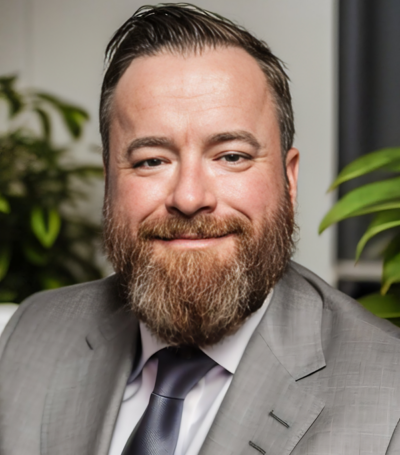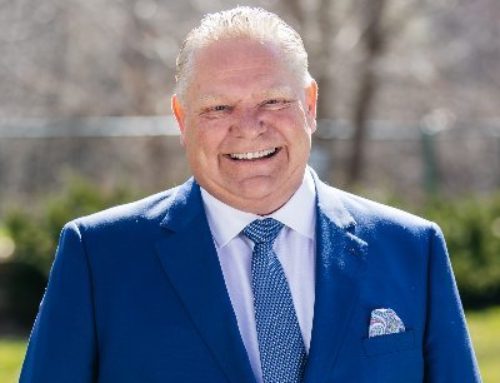Paul Tuns:

Christian missionary and businessman Michael Clark fell couple dozen nominations short of qualifying for Liberal leadership race.
Following Justin Trudeau’s announcement that he would not lead the Liberal Party as leader into the next election and would step down as Prime Minister once his successor was chosen, the national board of the party set up the rules for selecting his replacement. Among the requirements to run for leader was a $350,000 entrance fee and securing at least 100 nominations by members in at least three different provinces. Despite those hurdles, a virtual unknown to the national Liberal Party, pro-life businessman Michael Clark, fell 30 signatures short of the 300 needed to officially enter the leadership race.
Clark highlighted two issues on his website, one of which was “Respect Conscience Rights of Our Candidates,” by repealing “Justin Trudeau’s discriminatory 2014 ban on pro-life Canadians running as Liberal Party candidates.” Clark vowed to “restore the party’s once proud tradition of allowing a diversity of viewpoints, and healthy debate, on moral issues like abortion and euthanasia.” Clark’s website said he was “running for the leadership of the Liberal Party of Canada with a vision to restore its centrist roots.”
He says that Trudeau’s pro-abortion stridency alienated many Canadians and pointed to past pro-life Liberal MPs such as Dan McTeague, Paul Szabo, and Tom Wappel in the 1990s and early 2000s during Jean Chretien’s leadership as examples of candidates who would have no place in the party today. He said the party should allow a diversity of perspectives on moral issues such as abortion and euthanasia.
His motto for the campaign was “God Keep Our Land.”
Clark is founder of ChristianAiTraining, which helps businesses and non-profits implement artificial intelligence in their workplace, and is a missionary with The Christian Impact Network, a group that seeks to shape “culture through their impactful work in politics, law, education, media, and advocacy.”
Campaign Life Coalition national president Jeff Gunnarson told The Interim that Clark would have “shaken up the Liberal Party” had he qualified and been approved as a leadership candidate. “If he was approved, the Liberal Party would have had a chance to move on from Trudeau’s pro-abortion extremism and re-franchise pro-life Liberals,” said Gunnarson. But if Clark was not approved, “it would have shown that the party is not really moving on from Trudeau’s terrible legacy as the country’s most pro-abortion prime minister.”
Gunnarson said CLC worked hard to get the required number of members and had the organization been given another day to contact supporters, would have “easily reached” the benchmarks for Clark.
Clark tweeted, “So, I want to thank, first of all, God for all the inspiration to run and to want to bring Christian principles back to Canada” on Jan. 23 after he just missed the benchmarks needed to become a leadership contender. He continued, “You know, I think this is just the beginning of my work in politics and maybe even helping the Liberal Party.” He maintains that the Liberals need to “come back to the centre and drop the alt-left woke ideology” before Canadians will trust the party once again.
Gunnarson said he welcomed Clark’s commitment to continue working within the Liberal Party, saying that being pro-life should not be a partisan issue.
Six candidates did qualify for the leadership race: MP and Parliamentary Secretary to the Minister of Crown-Indigenous Relations Jaime Battiste; former MP Frank Bayliss; former head of the Bank of Canada Mark Carney; former MP Rudy Dhalla; MP and former finance minister Chrystia Freeland; and MP and former government House leader Karina Gould. MP Chandra Ayra submitted the needed signatures and initial payment for his entrance fee but was deemed “manifestly unfit” to be party leader by the leadership vote committee, although it did not state why.
Campaign Life Coalition notes that Battiste, Bayliss, Dhalla, Freeland, and Gould all have a pro-abortion and pro-euthanasia voting record, with Freeland and Gould enthusiastically promoting abortion in the House of Commons and on their social media accounts. As finance minister, Freeland tabled the bill to strip pregnancy resource centres of their charitable tax status if they do not advertise that they do not commit or refer for abortions. As House leader, Gould regularly attacked Conservative leader Pierre Poilievre for permitting his MPs to be pro-life.
Freeland and Carney, both vocal carbon tax supporters before becoming leadership candidates, have claimed they will rescind the unpopular levy while Gould has said she will freeze an increase in the tax. Vandana Kattar, a former Trudeau policy advisor, told the CBC “the carbon tax is dead.”
Gould is also promising to exempt baby clothes, diapers, and car seats GST-free.
It is possible that some of the six candidates will not meet deadlines for subsequent installments on the entrance fee and could be removed as official candidates. The final list of candidates will be available Feb. 17.
Canadian residents, 14 years and older had to be members of the Liberal Party by Jan. 26 in order to vote for leader.
Voting is by preferential ballot in which each round’s last place finisher will be eliminated from the count until a winner is declared when he or she breaks 50 per cent support. Each riding is worth 100 points and those points are distributed according to the percentage vote each candidate receives in the riding.
Voting will end and the winner will be announced on March 9.




